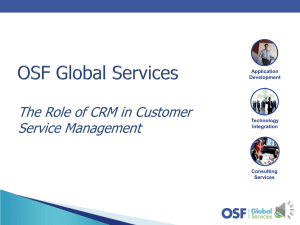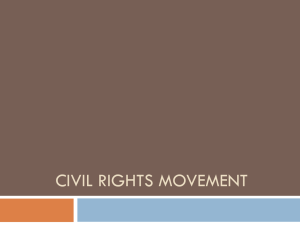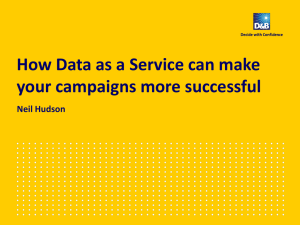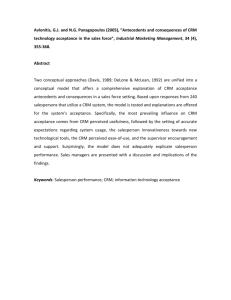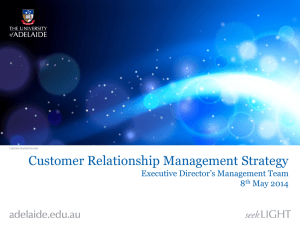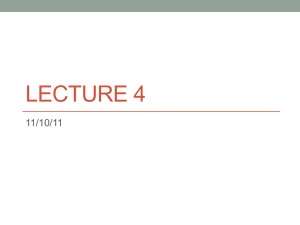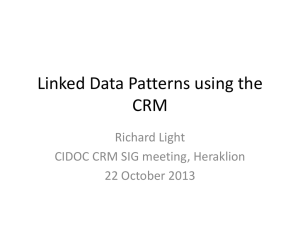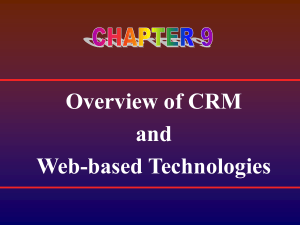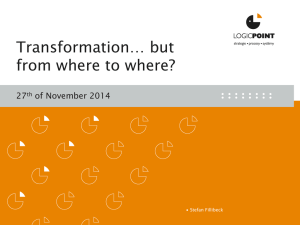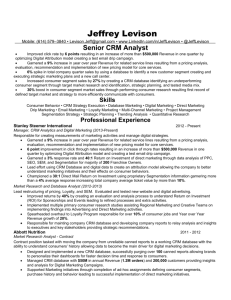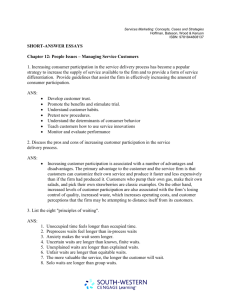docx file - The CIDOC CRM
advertisement
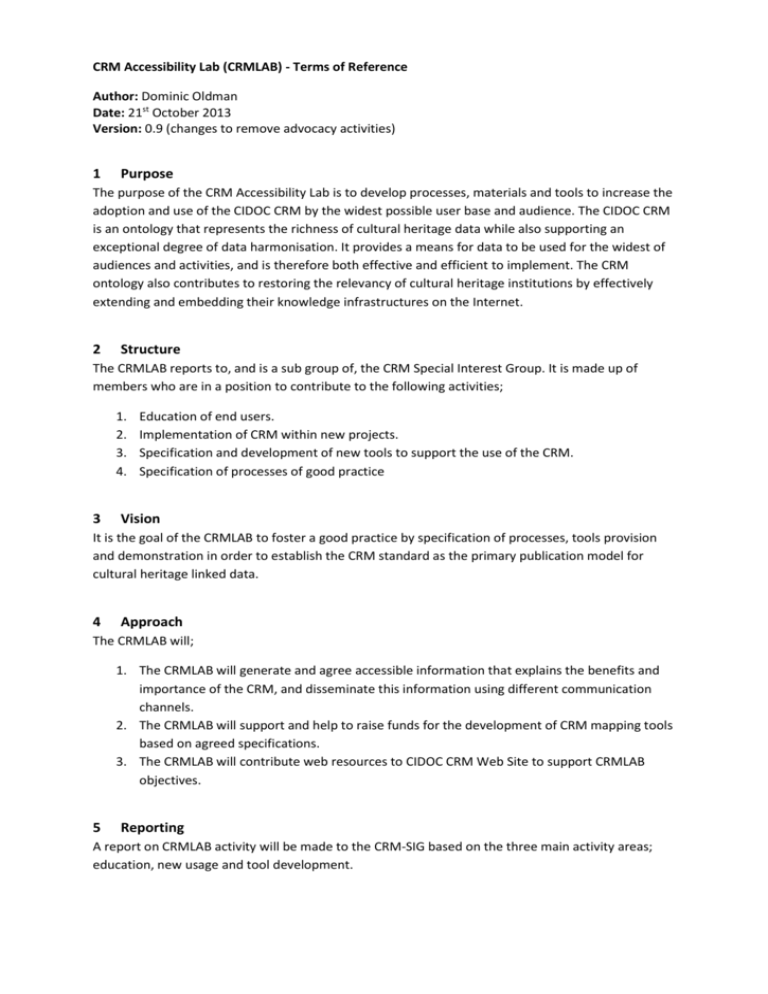
CRM Accessibility Lab (CRMLAB) - Terms of Reference Author: Dominic Oldman Date: 21st October 2013 Version: 0.9 (changes to remove advocacy activities) 1 Purpose The purpose of the CRM Accessibility Lab is to develop processes, materials and tools to increase the adoption and use of the CIDOC CRM by the widest possible user base and audience. The CIDOC CRM is an ontology that represents the richness of cultural heritage data while also supporting an exceptional degree of data harmonisation. It provides a means for data to be used for the widest of audiences and activities, and is therefore both effective and efficient to implement. The CRM ontology also contributes to restoring the relevancy of cultural heritage institutions by effectively extending and embedding their knowledge infrastructures on the Internet. 2 Structure The CRMLAB reports to, and is a sub group of, the CRM Special Interest Group. It is made up of members who are in a position to contribute to the following activities; 1. 2. 3. 4. 3 Education of end users. Implementation of CRM within new projects. Specification and development of new tools to support the use of the CRM. Specification of processes of good practice Vision It is the goal of the CRMLAB to foster a good practice by specification of processes, tools provision and demonstration in order to establish the CRM standard as the primary publication model for cultural heritage linked data. 4 Approach The CRMLAB will; 1. The CRMLAB will generate and agree accessible information that explains the benefits and importance of the CRM, and disseminate this information using different communication channels. 2. The CRMLAB will support and help to raise funds for the development of CRM mapping tools based on agreed specifications. 3. The CRMLAB will contribute web resources to CIDOC CRM Web Site to support CRMLAB objectives. 5 Reporting A report on CRMLAB activity will be made to the CRM-SIG based on the three main activity areas; education, new usage and tool development.
